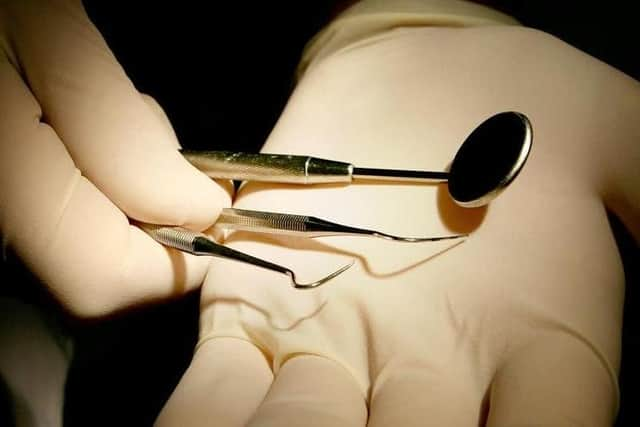Dental contracts have long been unfit for purpose - Yorkshire Post Letters
I read in your paper on July 14 that a Health and Social Care Committee (HSCC) has found that the current NHS Dental contract is not fit for purpose.
How did it take 17 years to reach that conclusion which was obvious from the start? The current contract was introduced in 2006 following negotiations between the British Dental Association (BDA) and the Department of Health.
Advertisement
Hide AdAdvertisement
Hide AdThey had reached an agreement on a new contract and another meeting to see the final wording of the contract was arranged. At that meeting the BDA was presented with a contract which bore no resemblance whatsoever to the contract they had spent over a year formulating.


The BDA walked out of the pointless meeting and the contract was imposed. Under this contract, for the first time dentists were able to negotiate their individual contracts but even if a dentist could show that the contract that they were offered by the local health authority was based on faulty calculations, the negotiation consisted of take it or leave it, no further discussion.
It is my belief that successive governments have attempted to persuade dentists to leave the NHS and take the blame for the subsequent lack of NHS dentistry. The current contract proved very effective at achieving this aim. Not only did it steal the Seniority pay, a fund whereby NHS dentist pay had been top sliced since the 1960s to provide money to boost the pay of the over 55s as they became less productive with advancing years, it also introduced the ludicrous system of Units of Dental Activity whereby any fillings over one, required by a patient has to be provided by the dentist for no payment.
It has been suggested in the HSCC report that there should be financial incentives given to dentists to persuade them to treat patients with multiple cavities. This sounds to me like paying people to work, a novel concept employed by most of society.
Advertisement
Hide AdAdvertisement
Hide AdI also hear that the Doctors and Dentists Review Board have recommended a 6 per cent pay rise for dentists and this is to be implemented. This is not a 6 per cent pay rise. Out of the money dentists receive they will have to pay their staff who surely deserve a 6 per cent rise, they will also have to pay their energy bills which have risen by much more than 6 per cent as have all the supplies they need to carry out their business, so what is left for them (their pay) will be much less than 6 per cent more than it was last year.
Today various poorly paid healthcare workers are on strike. Dentists have never nor will they ever go on strike. Going on strike when you are self employed doesn't work.
Striking is defined as withdrawing one's labour, so perhaps the dentists are on strike as they have withdrawn their labour from the NHS but I'm afraid that they won't be coming back.
Some years before the 2006 contract was imposed dentists were asked to vote on the introduction of a core service for NHS dentistry, this could be a limited number of treatments available on the NHS or a full service available to a limited number of patients, children, benefit recipients etc. No change to the contract was not an option, however after the vote it transpired that no change was an option. As I say, dentists working privately will not be coming back to the NHS, the only way to preserve some kind of NHS dentistry might be some form of core service but it would have to be well funded.
